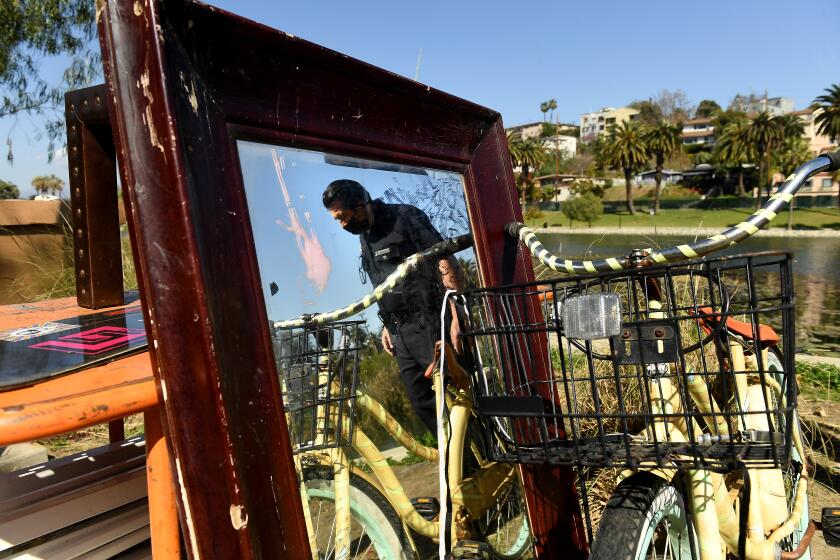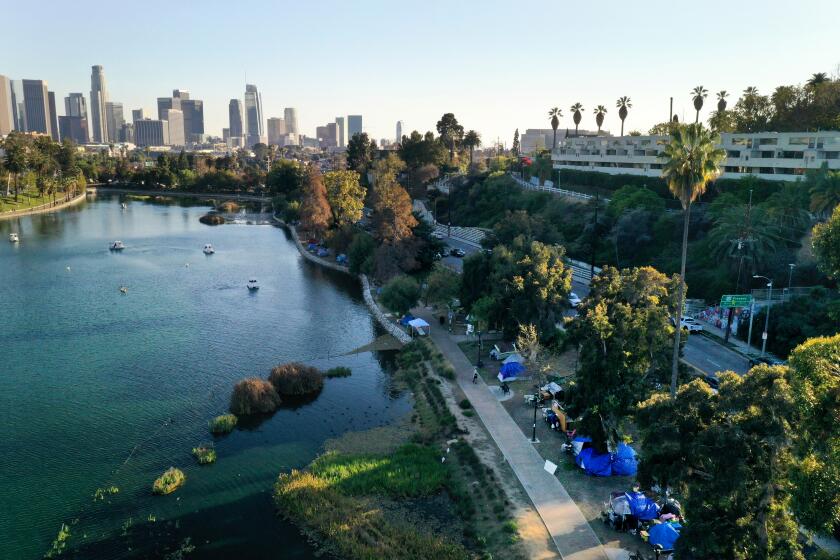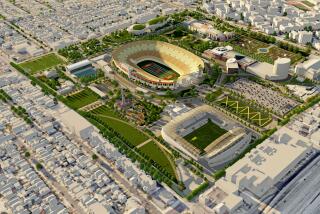Echo Park Lake reopens, with new grass, new paint and no tents
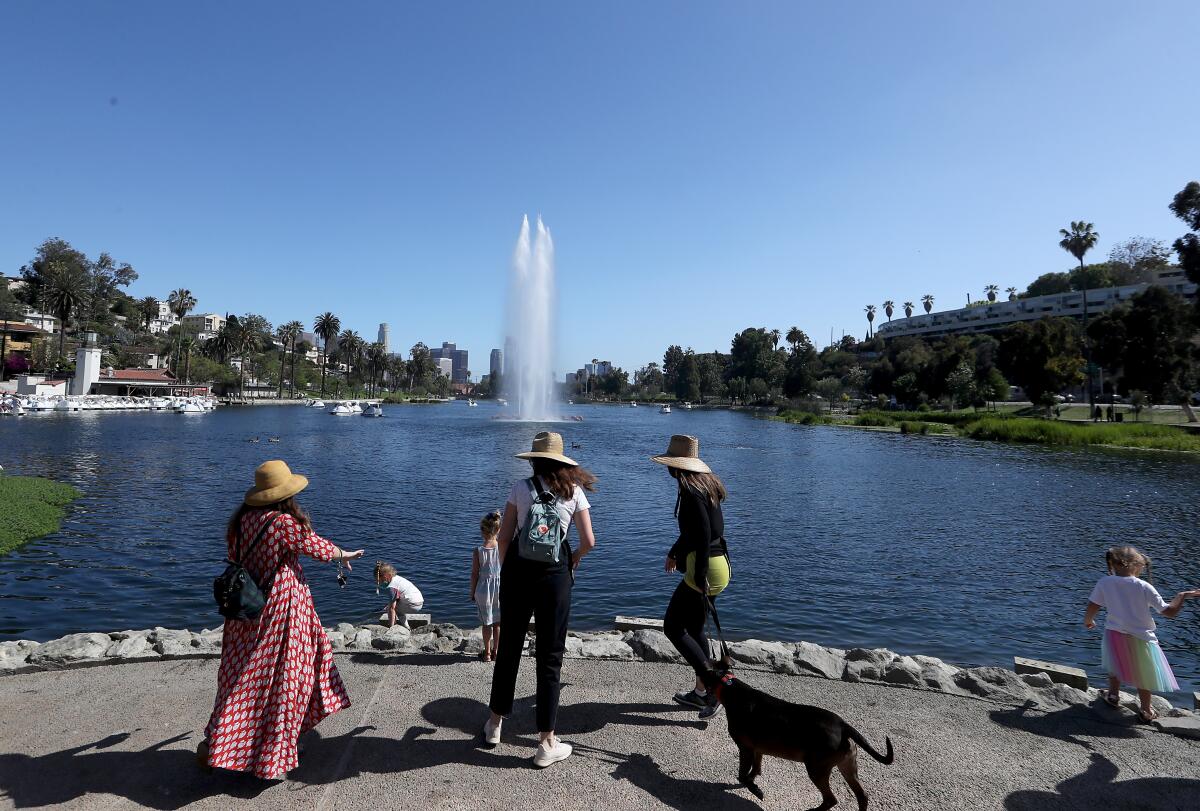
- Share via
Within minutes of Echo Park Lake reopening Wednesday, much of what had come to define the greenspace over the last year had returned.
Kids giggled as they flew down the slide. Couples laughed as they waited in line for the swan boats. Friends convened to drink beer and grill. Homeless Angelenos came to take stock of the place where they used to pitch a tent, and protesters yelled at City Councilman Mitch O’Farrell as he made a brief appearance to celebrate the lake’s opening before returning to his district office a block away.
What hadn’t returned were tents, which had sprung up in the park over the last year and were removed after a forceful police crackdown. The tents won’t be coming back anytime soon, city officials said.
When the city swiftly fenced off Echo Park and prodded people out of a sprawling camp that had taken root along its scenic lake, it was an extraordinary move in a city full of homeless encampments.
“At 10:30 [every] evening we’ll be doing a sweep,” Chief Park Ranger Joe Losorelli said.
“Anybody that’s in the park will be removed from the park, either by their own volition, or if when we ask them to leave and they don’t, they’ll be subject to arrest and or citation.”
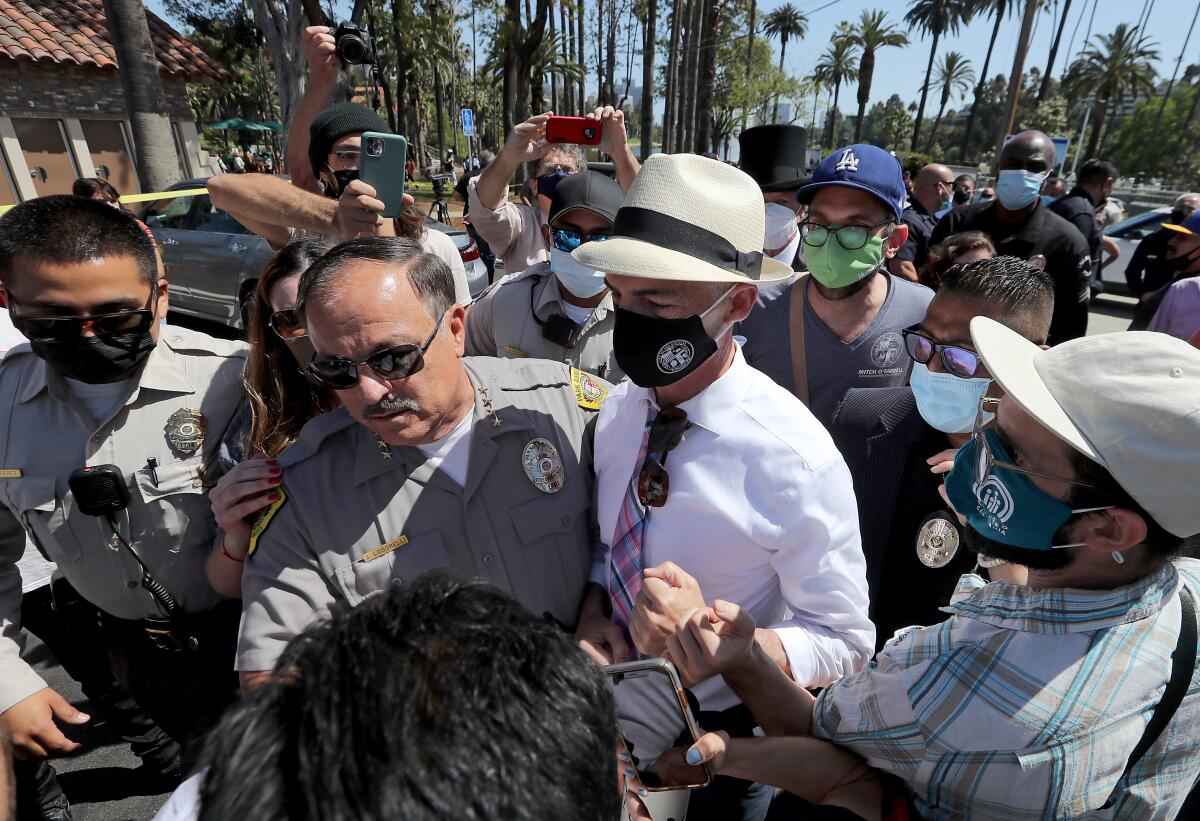
Losorelli said the municipal code prohibiting tents and camping in city parks would be enforced and the four gates to a fence that surrounds the park would be shut nightly. Certain areas remained fenced off to let the grass grow back. That didn’t stop two horses with park rangers on their backs from indulging in some lunch by ripping up what had only just been replanted.
Recreation and Parks workers had pared back weeds that hadn’t been touched in months before the park closed. Trees were trimmed and graffiti removed. Every fixture, door and piece of hardware in the bathrooms were replaced.
Quickly the playground filled with screaming children chasing each other. Their guardians watched from the side, seemingly relieved the kids had a place to play.
Griselda Reza, 28, sat with her cousin Sonia Avelar, 20, laughing as Reza’s four nieces and nephews ran through the playground. Reza lives blocks from the park with six other members of her family and said having a place to take the young ones, who are between the ages of 8 and 14, was a great relief.
“The kids are so excited to be back,” she said. “They love the raspado and corn from the vendors. It’s just so great to be back here with them.”
It had been two months since the park was closed by city officials, who kept their plans secret until the last minute. After police issued a dispersal order, protests erupted and protesters, journalists and legal observers were detained. On one night of protests, authorities said 182 people were arrested for failing to disperse.
In the preceding weeks and months, outreach workers had been able to get more than 180 people living in the park into hotel rooms rented by the city under the Project Roomkey program, as well as other forms of interim housing. The pandemic’s limits on dispersing encampments meant prohibitions on pitching tents in parks weren’t immediately enforced.
A homeless encampment at Echo Park Lake has become a symbolically fraught case study of the rights to public spaces
Several of the homeless participants spoke about the challenges of living in hotels with rules that governed when they could come and go and limited with whom they could interact. Their speeches were initially interrupted by Kevin Paffrath, a recall candidate for governor, who wandered through the park with a posse who filmed him.
Leonard Averhart, also known as Phoenix, who was one of the unhoused people formerly living at Echo Park Lake, said he felt like an inmate in the hotels where he’d been placed.
“You have no privacy,” Averhart said.
“We’ve got 7 o’clock curfews. We have no locks on our doors. We don’t even have a key to our own door. We have to have somebody open the door for us.”
Not all were displeased with their accommodations. One previous park resident, Howard Ducksworth, 65, had been at a nearby church checking in with a social worker who is helping him get set up with a rental voucher. Since February, he’s been staying at a downtown hotel and says the three meals daily, clean mattress and support have been a “blessing.”
“It’s nice just to visit here,” he said of the park. “But not to stay.”
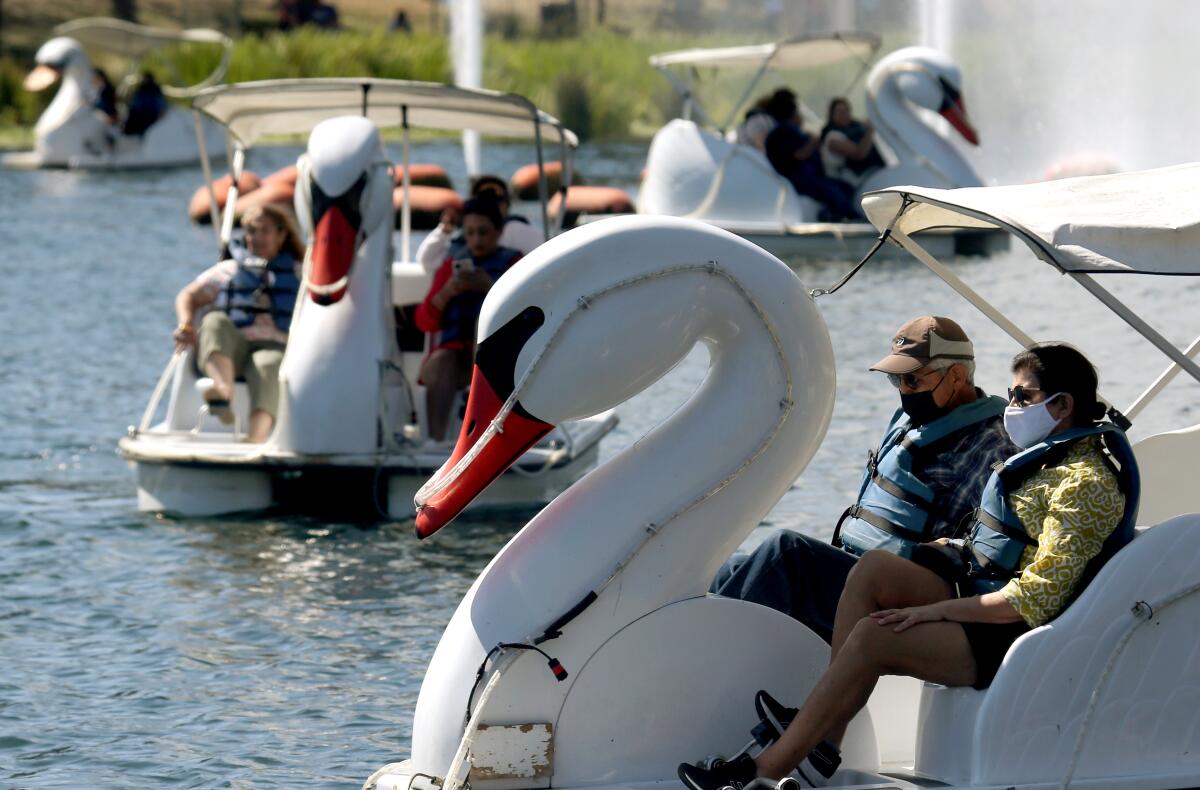
Manuel and Debra Mora both previously worked in the county’s mental health services system and had seen firsthand how challenging it was to end homelessness. They’re both retired now — he is 78; she is 69 — and had read that the park was reopening. The downtown residents have lived in L.A. their entire lives, and Debra said the last time she was out on a boat on the lake was 40 years ago.
“It’s such a beautiful park and so great to see it.”
The couple, who have been together 32 years, decided to give it another shot on Wednesday. So, they put on life jackets and began paddling.
More to Read
Sign up for Essential California
The most important California stories and recommendations in your inbox every morning.
You may occasionally receive promotional content from the Los Angeles Times.
